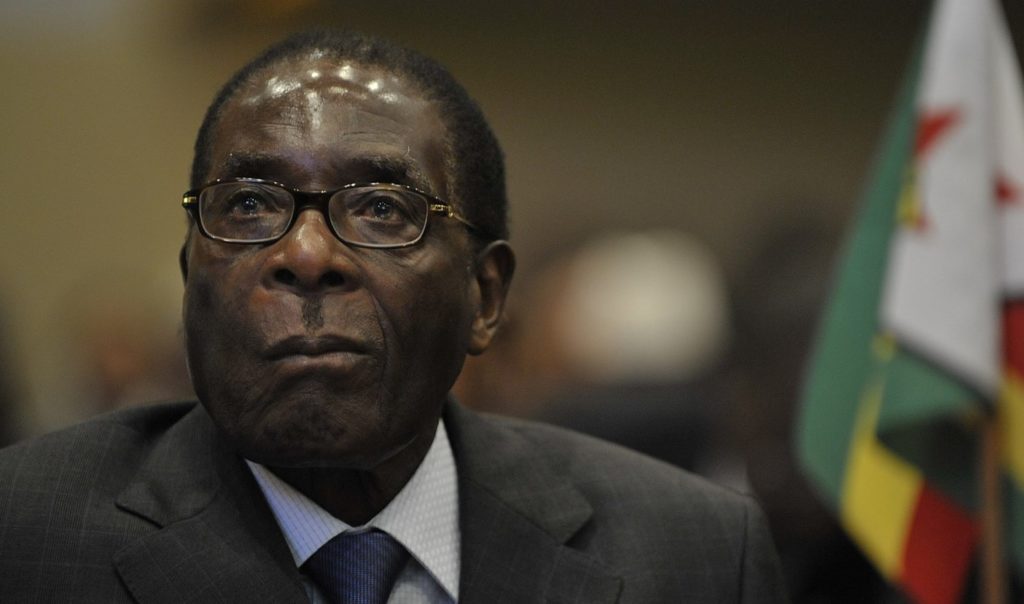‘That which purifies us is trial, and trial is by what is contrary’ John Milton, Areopagitica (1644)
Counterpoint, a new occasional feature on the Daily Friend, seeks to match the wisdom Milton expressed in his great defence of free speech: that the best ideas emerge from scrutiny and argument. Guest opinions expressed in this column are not necessarily those of the Daily Friend or of the IRR.
Madiba’s agitated words, referring to the murderous regime of Nigerian dictator Sani Abacha, that ‘(we) are dealing with an illegitimate, barbaric, arrogant, military dictatorship which has murdered activists, using a kangaroo court and using false evidence’, came after his ‘quiet diplomacy’ regarding Ken Saro-Wiwa’s execution in 1995 had been rebuffed.
Today, these words resonate across Africa, where the most enduring kakistocratic regimes hold sway.
Our African brethren, having suffered many long years of torture, starvation, detention, and even slaughter at the hands of tin-pot dictators, saw the new South Africa as their biblical Canaan. Madiba, the ever-magnanimous statesman, like many across the political spectrum, saw this as an ideal opportunity to overly compensate people from African countries which had hospitably accommodated, trained and provided weapons to the African National Congress (ANC) in exile.
However, this camaraderie lasted only as long as the utopian country of milk and honey endured, and it quickly faded. The reality soon dawned, at least on poor South African citizens, that the loaf was not big enough both for them and for the growing numbers of African immigrants in their midst. The explosion of sporadic attacks, described as xenophobic, on foreign nationals between 2000 and 2019 should have given our government enough opportunity to reflect on its short- and long-term policy directions.
Avoid recurrence of violence
This should have been an ideal opportunity to re-align our domestic and foreign policy with our constitutional democracy and the Bill of Rights so as to avoid the recurrence of such violence. To glibly explain them as xenophobic, without studying the driving force, does not offer any solutions.
Christopher Claassen, writing in Afrobarometer, posits that ‘poverty, relative deprivation, frustration with government and social mobilization with mixed evidence for resource competition’ are factors producing aggression that is targeted at African immigrants. It follows, ipso facto, that the government should take all these factors into consideration when crafting its foreign and home affairs policies.
Thus, in an Africa mostly run by authoritarian regimes and military juntas (27 in 2018), promotion of a democratic culture and human rights (as the tenets of our international relations) should have been unflinchingly implemented. Certainly, this would, to an extent, have limited the influx of African immigrants into South Africa. In addition, South Africa would have been saved from the embarrassment of having to send apologetic envoys to African capitals for what is fundamentally a bread-and-butter issue.
In the event, South Africa has paid unnecessary deference to Robert Mugabe and indeed to other African dictators, forgiving excesses at the expense of their citizens. While respect for the sovereignty of a state is a traditional imperative in the conduct of international relations, it must never be at the cost of our country’s prestige. South Africa should have voiced opposition to what Mugabe did from 1994 until he was forced from power.

The Government of National Unity (GNU) which SA helped forge between the warring parties, ZANU and MDC, will always be a reminder of Mugabe’s disastrous leadership. He never respected the agreement, which resulted in the MDC continuing to be subjected to brutal harassment. Instead of nursing its ineffectual quiet diplomacy, South Africa should have publicly condemned Mugabe. Yet, the consequence is that Zimbabwe remains an albatross around our necks.
Appeasing the tyrants
While our government keeps appeasing the tyrants, their immigrants – registered or unregistered – continue to spill into our country. Our borders are as porous as ever. According to 2016 statistics from Stats SA, South Africa has an estimated more than one million Zimbabwean and about 30 000 Nigerian immigrants. These figures represent just a fraction of our estimated three million African immigrants. The allegations that some of these immigrants are involved in such criminality as drug peddling and heists encourage xenophobic attacks. The most important question one must ask is: what strategy does our government have to manage the growing number of immigrants and the attendant political instability in our country?
Since 1994, our foreign policy towards Africa has structurally been flawed and has dismally failed to speak to our constitutional democracy. There might, however, be a meaningful change by the present administration, away from being craven and placatory towards African tyrants. Perhaps, because he saw these pitfalls, President Cyril Ramaphosa ordered a Foreign Affairs panel review when he assumed power. The panel noted that ‘the country has not played the role it was expected to play or should have played in engaging a number of international issues’. This is an understatement, since critics have excoriated our foreign policy for being ‘erratic’ and lacking coherence and co-ordination, especially with regard to ‘clarity of definable goals and objectives’.
Accordingly, we should stop fêting bloody tyrants who are perpetuating atrocities against their citizens. The immigrants accuse our government of preaching from the text of a democratic constitution which they don’t preach to African tyrants. The policy of Chamberlain-like appeasement has long been discredited. As former United States president Ronald Reagan once said: ‘There is no security, no safety in the appeasement of evil.’
It’s about time that the government adopted a decisive foreign policy strategy that talks to our Constitution and Bill of Rights. It should be communicated here at home and from foreign missions abroad so that both those among us who wish to throw our borders wide open and those who agitate for the employment of South Africans only should take note. If well-communicated and understood, such clarity would avoid the unnecessary bloodshed apparently born of xenophobia. This should mark a new beginning of the ‘economic diplomacy’ Ramaphosa envisages for Africa. But it must be grounded in a sound democratic ethos.
The views of the writer are not necessarily the views of the Daily Friend or the IRR
If you like what you have just read, subscribe to the Daily Friend

